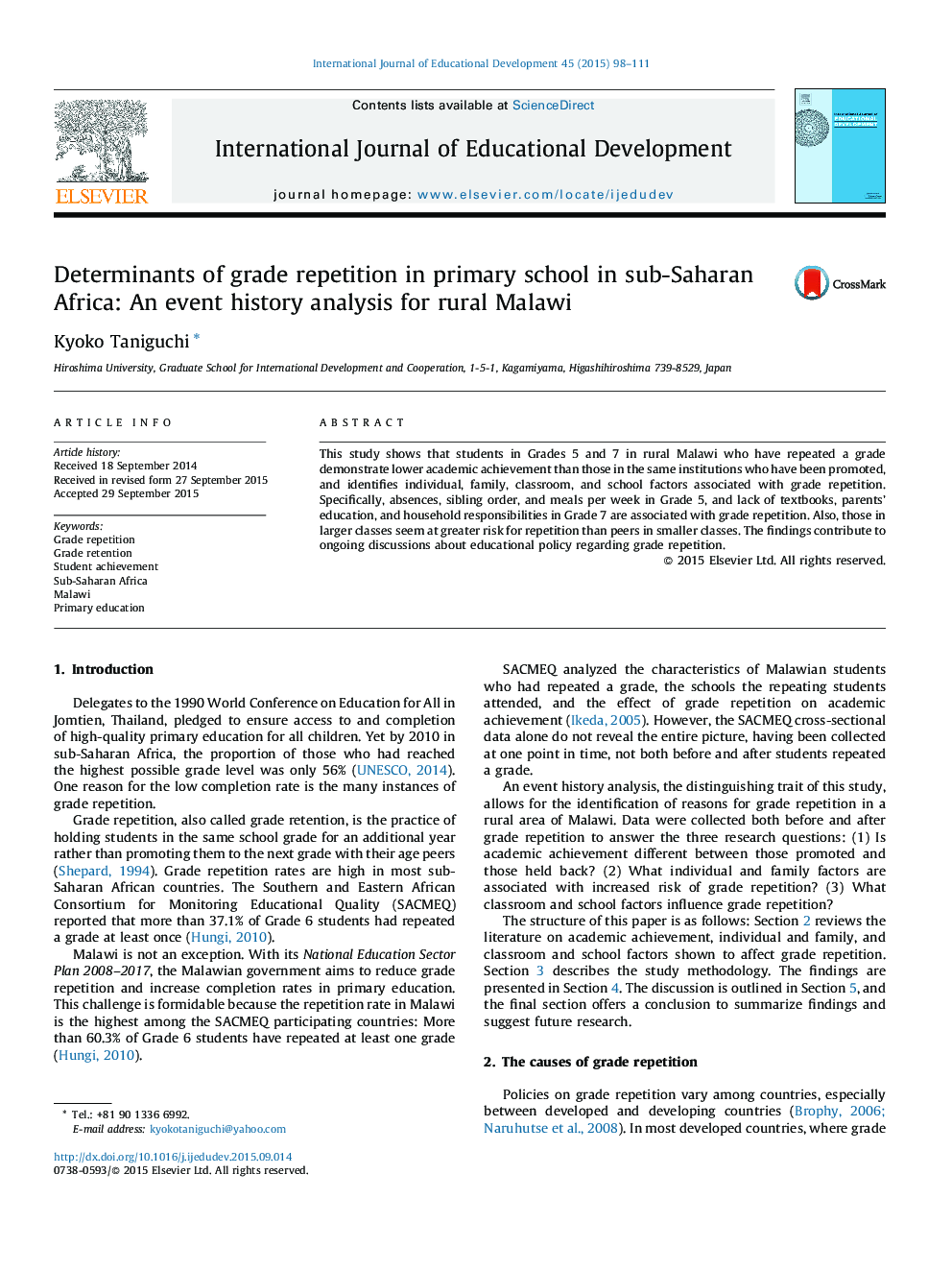| Article ID | Journal | Published Year | Pages | File Type |
|---|---|---|---|---|
| 356011 | International Journal of Educational Development | 2015 | 14 Pages |
•Lower academic achievement was a dominant factor in grade repetition.•Absenteeism and lack of textbooks were related to grade repetition.•A disadvantaged family was not a strong predictor of grade repetition.•Large class size increased the probability of grade repetition.•The criteria for repeating a grade varied among class teachers.
This study shows that students in Grades 5 and 7 in rural Malawi who have repeated a grade demonstrate lower academic achievement than those in the same institutions who have been promoted, and identifies individual, family, classroom, and school factors associated with grade repetition. Specifically, absences, sibling order, and meals per week in Grade 5, and lack of textbooks, parents’ education, and household responsibilities in Grade 7 are associated with grade repetition. Also, those in larger classes seem at greater risk for repetition than peers in smaller classes. The findings contribute to ongoing discussions about educational policy regarding grade repetition.
